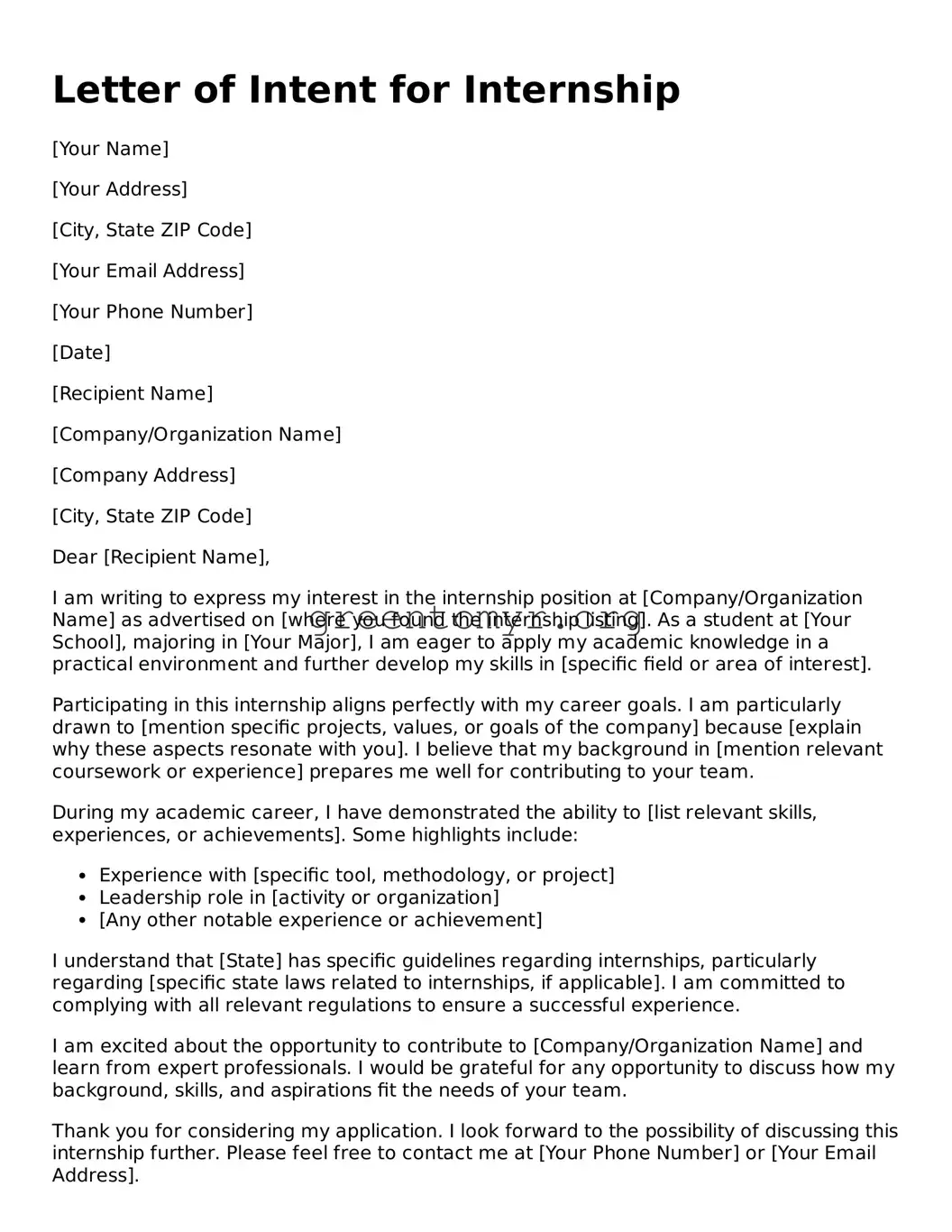Letter of Intent for Internship
[Your Name]
[Your Address]
[City, State ZIP Code]
[Your Email Address]
[Your Phone Number]
[Date]
[Recipient Name]
[Company/Organization Name]
[Company Address]
[City, State ZIP Code]
Dear [Recipient Name],
I am writing to express my interest in the internship position at [Company/Organization Name] as advertised on [where you found the internship listing]. As a student at [Your School], majoring in [Your Major], I am eager to apply my academic knowledge in a practical environment and further develop my skills in [specific field or area of interest].
Participating in this internship aligns perfectly with my career goals. I am particularly drawn to [mention specific projects, values, or goals of the company] because [explain why these aspects resonate with you]. I believe that my background in [mention relevant coursework or experience] prepares me well for contributing to your team.
During my academic career, I have demonstrated the ability to [list relevant skills, experiences, or achievements]. Some highlights include:
- Experience with [specific tool, methodology, or project]
- Leadership role in [activity or organization]
- [Any other notable experience or achievement]
I understand that [State] has specific guidelines regarding internships, particularly regarding [specific state laws related to internships, if applicable]. I am committed to complying with all relevant regulations to ensure a successful experience.
I am excited about the opportunity to contribute to [Company/Organization Name] and learn from expert professionals. I would be grateful for any opportunity to discuss how my background, skills, and aspirations fit the needs of your team.
Thank you for considering my application. I look forward to the possibility of discussing this internship further. Please feel free to contact me at [Your Phone Number] or [Your Email Address].
Sincerely,
[Your Name]
